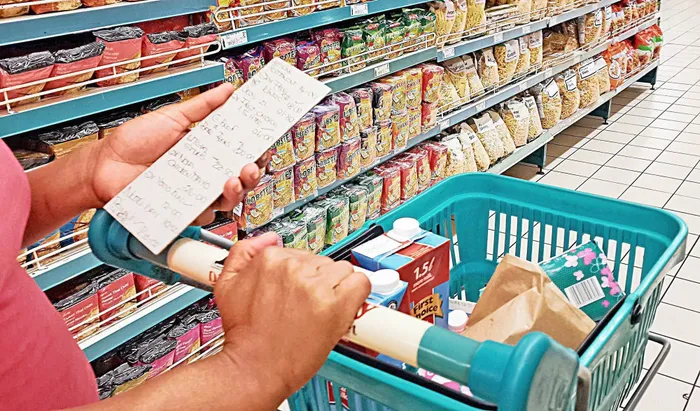
Today's consumers are demanding real value and meaningful discounts, not shallow promotional offers. This transformation has been driven primarily by ongoing economic pressures that have made households increasingly price sensitive.
Image: File
Black Friday has undergone a remarkable transformation in South Africa. The frenzied scenes of shoppers queuing for hours and stampeding through store doors have given way to a more calculated, strategic approach to deal-hunting.
As we navigate Black Friday 2025, it's clear that South African consumers are no longer treating this as a single-day shopping spree, but rather as "Black November”, an extended period for careful planning and research.
This year's shopping behaviour reflects a fundamental shift in how South Africans approach Black Friday.
Gone are the days of impulsive splurging.
Today's consumers are demanding real value and meaningful discounts, not shallow promotional offers. This transformation has been driven primarily by ongoing economic pressures that have made households increasingly price sensitive.
The economic landscape, while showing some positive signs with interest rate cuts, presents a complex picture.
The introduction of the two-pot pension withdrawal system and reduced interest rates have the potential to boost household disposable income.
However, financial experts are rightly cautioning against using retirement savings for discretionary spending.
Unfortunately, given the financial instability many South African families face, some may feel compelled to tap into these savings to stock up on discounted essentials during the Black Friday period.
The most significant trend we're observing is the prioritisation of necessities over non-essential purchases.
South African consumers are using Black Friday as a critical financial management tool, stretching their budgets to cover not just the festive season, but the new year ahead.
Shoppers are seeking deeper discounts on essential items such as groceries and clothing, alongside high-value purchases like electronics and home appliances that offer long-term utility. Some forward-thinking consumers are even using Black Friday to purchase back-to-school items in advance.
South Africa has witnessed a significant rise in online Black Friday shopping, driven by consumers' search for convenience and better value.
The trust in digital platforms has grown substantially, with shoppers increasingly moving away from physical stores.
This shift is supported by improved internet access, diverse digital payment options, and the emergence of social commerce, where social media platforms are becoming major retail storefronts.
Retailers have adapted by offering app-exclusive deals and partnering with "buy now, pay later" providers, allowing consumers to spread payments over weeks or months.
The online environment also provides shoppers with the time and space to make considered decisions, reducing the likelihood of impulsive purchases that might occur in the high-pressure atmosphere of physical stores.
Retailers are leveraging advanced technologies to enhance the Black Friday experience.
Artificial intelligence is being deployed for personalised marketing and deal-finding, helping consumers save time while enabling retailers to target their desired audiences more effectively.
Some retailers are even accepting cryptocurrency payments and embracing digital wallets, which offer enhanced security through encrypted transactions, particularly valuable during high-volume shopping periods.
Data analytics and AI-driven forecasting have become increasingly sophisticated, allowing retailers to analyse historical and real-time data to accurately predict consumer demand.
These insights help retailers prepare for anticipated website traffic, manage foot traffic in stores, and maintain optimal stock levels.
The data also reveals evolving patterns, such as the extension of sales periods and the dual consumer desire for both value and convenience.
New categories are gaining traction this Black Friday, with practical items like essentials and personal care products seeing increased demand.
Retailers are also introducing mystery boxes and bundles to create excitement and boost average order values.
Importantly, environmental consciousness is growing among South African consumers.
The excessive packaging, fast fashion, and overconsumption traditionally associated with Black Friday are being challenged by the Green Friday movement.
This sustainable alternative encourages conscious consumption, ethical shopping, and non-compulsive buying, emphasising waste reduction, support for eco-friendly brands, and purchasing second-hand items or experiences rather than material goods.
The competitive environment for Black Friday 2025 is markedly different from previous years. Retailers are offering significantly deeper discounts, with promotional activity starting as early as the beginning of November and extending through the Black Friday weekend.
This shift reflects an understanding that today's consumers will only purchase when discounts are genuinely meaningful and address their needs.
Black Friday 2025 represents a maturation of the South African shopping landscape. Consumers are approaching this period with caution and strategic intent, armed with better tools, more information, and clearer priorities.
For retailers, success will depend on understanding these evolving expectations and offering genuine value that helps South African households navigate challenging economic conditions.
The transformation of Black Friday from a chaotic single-day event to an extended period of strategic shopping reflects broader changes in South African consumer behaviour.
As we move forward, both retailers and shoppers will need to continue adapting to economic realities while embracing the technologies and approaches that make Black Friday a valuable opportunity rather than just another shopping event.
Palesa Ngomeza, Director of Consumer Markets at BDO SA.
BUSINESS REPORT